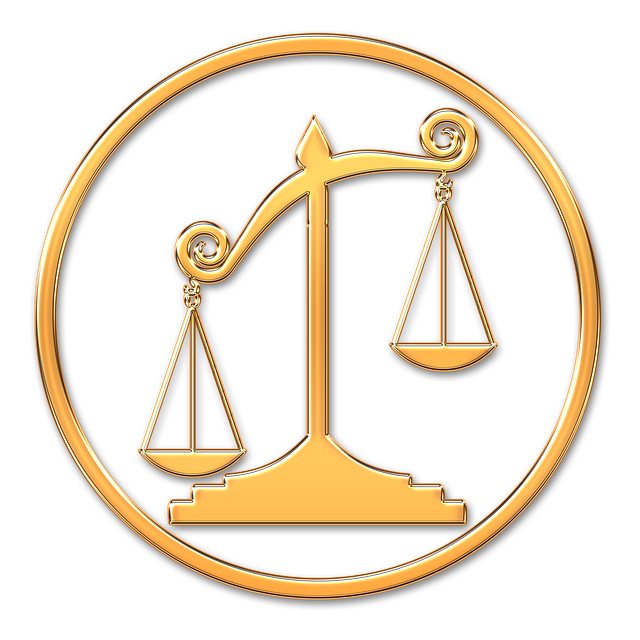Meticulous detail orientation is key in healthcare billing fraud investigations, where skilled investigators navigate complex regulatory landscapes using strategic litigation approaches. Proactive white-collar defense mechanisms, including internal controls and regular audits, mitigate impact. Staying informed about Healthcare Regulatory Litigation Strategies is vital for businesses to prevent probes, financial losses, and reputational damage. Advanced evidence collection techniques enhance justice in legal battles involving substantial financial interests. Organizations need tailored strategies with expert legal representation for robust compliance, risk assessment, and crisis management.
In the intricate landscape of finance crime probes, understanding the nuances of healthcare billing fraud, regulatory audits, and complex financial misdeeds is paramount. This article delves into critical strategies for navigating the challenges posed by these areas. From uncovering fraud in healthcare billing to litigating intricate financial misdeeds, we explore evidence collection techniques and strategic defenses against regulatory litigation. Armed with the right knowledge, professionals can enhance compliance and mitigate risks within the healthcare regulatory environment.
- Uncovering Fraud in Healthcare Billing
- Regulatory Audits: Strategies for Compliance
- Litigating Complex Financial Misdeeds
- Evidence Collection Techniques in Finance Crime
- Strategic Defense Against Regulatory Litigation
Uncovering Fraud in Healthcare Billing

In the realm of finance crime probes, uncovering fraud in healthcare billing is a complex task that demands meticulous attention to detail. Healthcare, being a vital sector, is susceptible to white collar and economic crimes, where sophisticated schemes can go undetected for extended periods. Skilled investigators employ various litigation strategies to navigate this intricate landscape, focusing on understanding the interplay between regulatory requirements and billing practices. By scrutinizing medical records, insurance claims, and financial transactions, they expose fraudulent activities that may involve either corporate or individual clients.
Effective white collar defense mechanisms are crucial in mitigating the impact of such probes. This involves a proactive approach where organizations implement robust internal controls, compliance programs, and regular audits to prevent fraud. Additionally, staying abreast of evolving Healthcare Regulatory Litigation Strategies is essential for both businesses and their legal counsel. This ensures that any anomalies or discrepancies are promptly identified and addressed before they escalate into full-fledged investigations, ultimately safeguarding against potential financial losses and reputational damage.
Regulatory Audits: Strategies for Compliance

In the realm of healthcare, regulatory audits are a critical tool for ensuring compliance with ever-evolving laws and standards. These audits, often conducted by specialized teams or general criminal defense attorneys, serve as a strategic defense mechanism against potential Healthcare Regulatory Litigation Strategies. By proactively identifying and rectifying non-compliance issues, organizations can achieve extraordinary results in maintaining regulatory integrity and avoiding costly legal battles.
Strategic planning is key during these audits. Organizations should focus on understanding the scope and intent of the audit, meticulously reviewing relevant policies and procedures, and preparing comprehensive documentation to demonstrate compliance with industry regulations. This proactive approach not only helps in preventing white collar and economic crimes but also showcases a commitment to ethical practices, which can be a significant defense in itself when navigating complex regulatory environments.
Litigating Complex Financial Misdeeds

In the realm of finance crime probes, litigating complex financial misdeeds requires a sophisticated approach that blends extensive knowledge with innovative strategies. Healthcare regulatory litigation is no exception, demanding a deep understanding of industry-specific laws and regulations. Successful prosecution or defense in these cases often hinges on meticulous document review, expert witness preparation, and nuanced interpretations of often ambiguous legal frameworks.
Effective strategies for winning challenging defense verdicts involve tailoring legal arguments to the specific facts of each case. This may include leveraging regulatory compliance programs, demonstrating due diligence, and presenting compelling alibies or extenuating circumstances. Whether representing corporate and individual clients in general criminal defense matters, attorneys must adeptly navigate the complex landscape of healthcare regulations to achieve the best possible outcomes.
Evidence Collection Techniques in Finance Crime

In the realm of finance crime probes, evidence collection techniques play a pivotal role in achieving justice and securing successful outcomes in healthcare regulatory litigation strategies. Given the complex nature of financial crimes, investigators employ sophisticated methods to uncover and preserve digital footprints, ensuring that every piece of information is meticulously documented and admissible in court. This includes the use of advanced data analytics tools to sift through vast datasets, identifying patterns and anomalies indicative of fraudulent activities.
The general criminal defense strategy often hinges on robust evidence collection practices. In high-stakes cases, where substantial financial interests are at play, investigators must remain adept at navigating intricate financial networks and utilizing innovative techniques. By combining traditional methods with modern technology, they can unearth crucial pieces of evidence that might otherwise go unnoticed, thereby enhancing the chances of obtaining extraordinary results in these complex legal battles.
Strategic Defense Against Regulatory Litigation

In the realm of healthcare, regulatory compliance is a intricate dance. As Healthcare Regulatory Litigation Strategies become increasingly stringent, entities must forge a robust strategic defense against potential probes. This involves a multi-faceted approach tailored to each organization’s unique landscape, encompassing risk assessment and mitigation, proactive compliance programs, and meticulous documentation. For his clients, across the country, these measures serve as a shield against regulatory scrutiny, ensuring adherence to ever-evolving standards.
Moreover, leveraging expertise in corporate and individual client representation is paramount. Skilled attorneys can navigate complex legal terrain, offering strategic counsel on policy implementation, internal audits, and crisis management. This proactive defense not only safeguards against litigation but fosters a culture of compliance, ultimately positioning healthcare providers as responsible stewards within their communities.
In conclusion, tackling finance crime requires a multi-faceted approach. From uncovering fraud in healthcare billing to strategic defense against regulatory litigation, understanding and implementing effective strategies are paramount. Regulatory audits play a crucial role in ensuring compliance, while litigating complex financial misdeeds demands advanced evidence collection techniques. By combining these key elements, professionals can fortify defenses, promote transparency, and foster integrity within the healthcare industry and beyond, ultimately safeguarding the public from financial misconduct.






